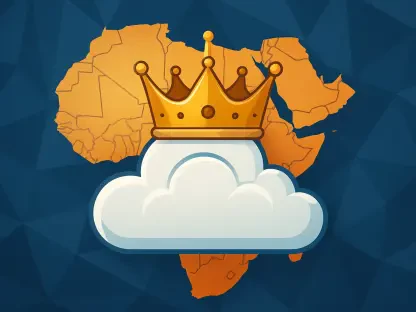The 2024 Accra Mobility Prediction Hackathon, organized by Zindi Africa and sponsored by Yango Group, marked a significant milestone in addressing urban transportation challenges in Accra. Held at the University of Ghana, Legon campus, the event attracted over 200 data science students and technology enthusiasts, both in person and virtually. Participants were tasked with developing advanced machine learning models to predict average traffic speeds in Accra, aiming to solve practical transportation issues identified by Yango’s data science team.
A Platform for Innovation and Collaboration
Bridging Industry and Academia
The hackathon provided a unique platform for collaboration between industry and academia, reinforcing the importance of such initiatives in solving real-world problems. Mr. Richard Okyere-Fosu, Director General of the National Information Technology Agency (NITA), underscored this sentiment, highlighting how leveraging technology and data science can significantly improve urban mobility in Ghana. He praised the initiative for aligning with the new ICT policy, which focuses on digital entrepreneurship, and encouraged more private sector institutions to undertake similar efforts. These collaborations between the tech industry and academic institutions are crucial for tackling pressing societal issues and fostering an environment that promotes innovation and digitalization in Ghana.
Moreover, the hackathon demonstrated how combining resources and expertise from different sectors could lead to tangible community benefits. By bridging the gap between academia and industry, participants could apply theoretical knowledge to practical issues, providing a real-world context that enriched their learning experience. This synergy showcased the potential to drive substantial improvements in urban living conditions, thereby promoting sustainable development through technological advancements.
Engaging a Diverse Group of Participants
The hackathon saw substantial female participation, with 32 women making up 16 percent of the participants, showcasing efforts towards gender inclusivity in tech. The event drew students from various universities, including the University of Ghana, Kwame Nkrumah University of Science and Technology, Ashesi University, Central University, Accra Technical University, and Ghana Communication Technology University. Many participants were first-time hackathon attendees, and they found the experience tremendously enlightening and an excellent opportunity to gain valuable skills in addressing real-world issues.
The diversity of participants added depth to the competition, as it brought together individuals from varied academic backgrounds and skill levels. This blend of perspectives fostered a more dynamic and collaborative environment, allowing students to learn from each other and expand their understanding of data science and its practical applications. The experience not only enhanced their technical abilities but also highlighted the importance of teamwork and collective problem-solving in the tech industry.
The Challenge and Its Impact
Developing Advanced Predictive Models
Participants were challenged to develop machine learning models to predict average traffic speeds in Accra at different times of the day, a task that required a deep understanding of data science and machine learning techniques. The competition culminated with the top three performers receiving monetary rewards, while other high-performing students were also recognized with prizes. The top-performing model achieved an RMSE (Root Mean Square Error) score of 1.42, indicating a highly accurate prediction with an average error rate of just 1.42 percent. Such accuracy is commendable and underscores the participants’ proficiency in developing solutions that address real-world transportation challenges.
Developing these predictive models involved intricate data analysis and algorithm refinement, highlighting the advanced skill set required to handle such tasks effectively. Participants had to clean and preprocess data, identify relevant features, and deploy sophisticated algorithms to achieve accurate predictions. This hands-on experience in tackling complex data problems provided invaluable insights into the practical applications of machine learning, equipping students with skills that are highly relevant in today’s tech-driven economy.
Recognizing Innovative Solutions
The winners of the competition were recognized for their innovative solutions that have the potential to significantly improve urban mobility in Accra. Ronny Polle took the top spot with his cutting-edge machine learning model, followed by Emmanuel Kwame Sekyi in second place and Offei Bekoe securing the third position. The undergraduate prize was awarded to Duke Kojo Kongo from the University of Ghana for his remarkable contribution to the competition. These accolades not only acknowledged individual excellence but also encouraged participants to continue exploring and developing solutions that could contribute to societal advancements.
The recognition of these innovative solutions underscores the hackathon’s role in inspiring young data scientists to apply their skills to real-world problems. By providing a platform for showcasing their talents, the event encouraged participants to push the boundaries of what is possible with data science and machine learning. This recognition is likely to motivate other students to engage in similar competitions, fostering a culture of innovation and continuous learning within the academic community.
Future Prospects and Continued Exploration
Encouraging Technological Advancement
Tom Ofonime, Country Manager for Yango Ride in Ghana, highlighted Yango’s commitment to technological advancement in the market. He emphasized that Yango’s services are built on advanced technology, with accurate travel time prediction being vital for ensuring a reliable service. Accurate ETAs (Estimated Time of Arrival) are crucial for customer satisfaction, efficient routing, and optimal driver allocation, all of which enhance user experiences. The hackathon’s success in fostering innovative solutions aligns with Yango’s broader goals of leveraging technology to improve urban mobility.
Accurate traffic predictions are essential for optimizing transportation systems, reducing congestion, and improving overall urban planning. By continuously advancing their technological capabilities, companies like Yango can provide more efficient and reliable services, ultimately benefiting the broader community. The hackathon served as a catalyst for these advancements, demonstrating how collaborative efforts can lead to significant improvements in service delivery and customer satisfaction.
Promoting Geospatial Data Analytics
Ofonime also expressed enthusiasm for geospatial data analytics and hoped that participating students would continue exploring urban mobility issues after gaining such valuable experience. The hackathon’s success has set the stage for future collaborations and continued exploration of urban mobility challenges, with the potential to revolutionize transportation in Accra and beyond. Geospatial data analytics plays a critical role in understanding and solving transportation issues by providing detailed insights into traffic patterns, infrastructure usage, and population movements.
The potential for innovative solutions in this field is vast, and the hackathon has laid a strong foundation for future research and development. By encouraging students to delve deeper into geospatial data analytics, the event has opened up new avenues for addressing urban mobility challenges. This continued exploration is likely to yield more sophisticated and effective solutions that can transform transportation systems, not just in Accra but in other cities facing similar issues.
Conclusion
The 2024 Accra Mobility Prediction Hackathon, hosted by Zindi Africa and backed by the Yango Group, represented a key effort in tackling urban transportation problems in Accra. The event, held at the University of Ghana’s Legon campus, gathered more than 200 participants, including data science students and tech enthusiasts, both on-site and online. These participants were given the challenge of creating sophisticated machine learning models to forecast average traffic speeds in Accra. The objective was to address real-world transportation issues pinpointed by Yango’s data science team. This hackathon not only provided an opportunity for emerging data scientists to showcase their skills but also aimed to contribute practical solutions that could significantly improve traffic management and urban planning in Accra. By leveraging data science and collaborative efforts, the event underscored the potential of technology in addressing pressing urban mobility challenges, paving the way for smarter, more efficient transportation systems in the city.









